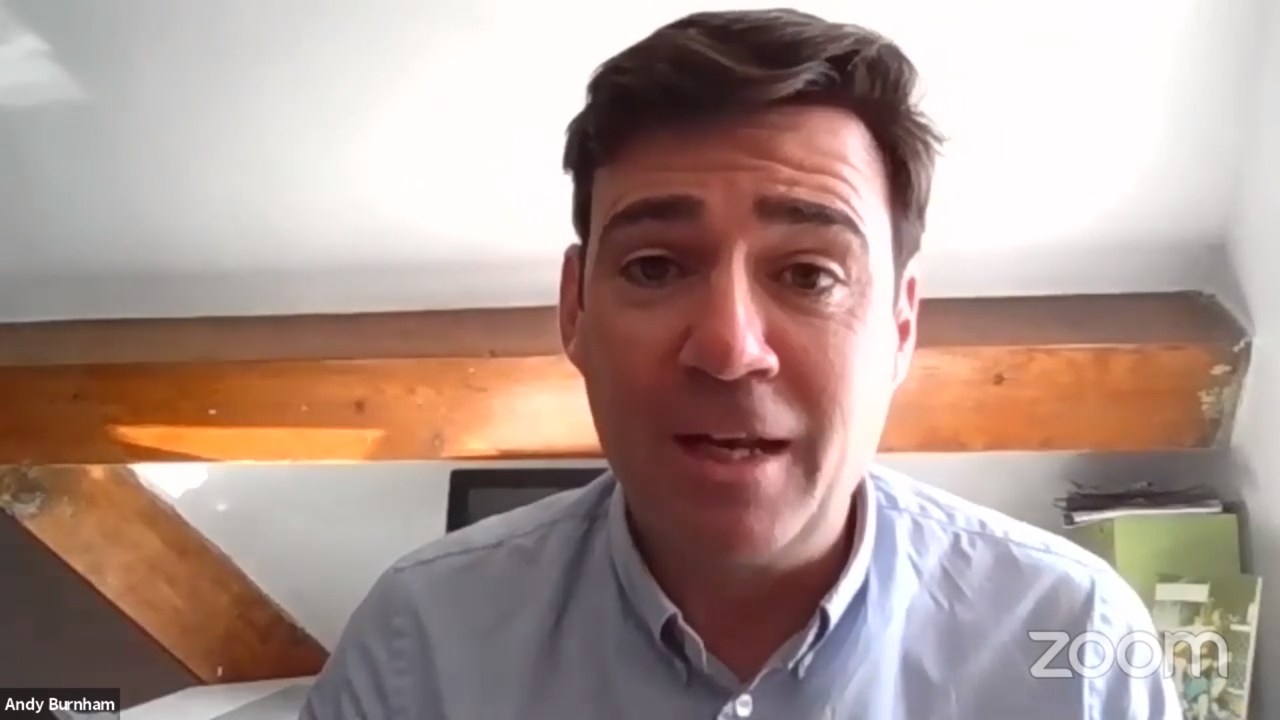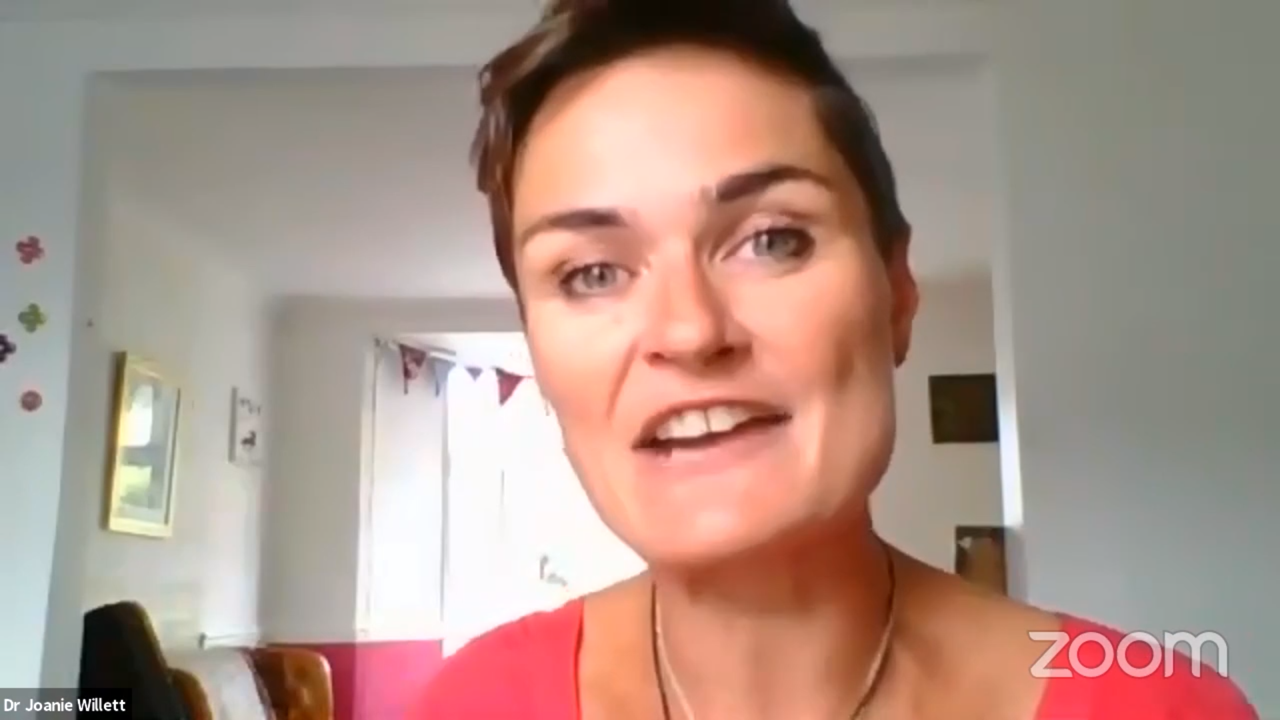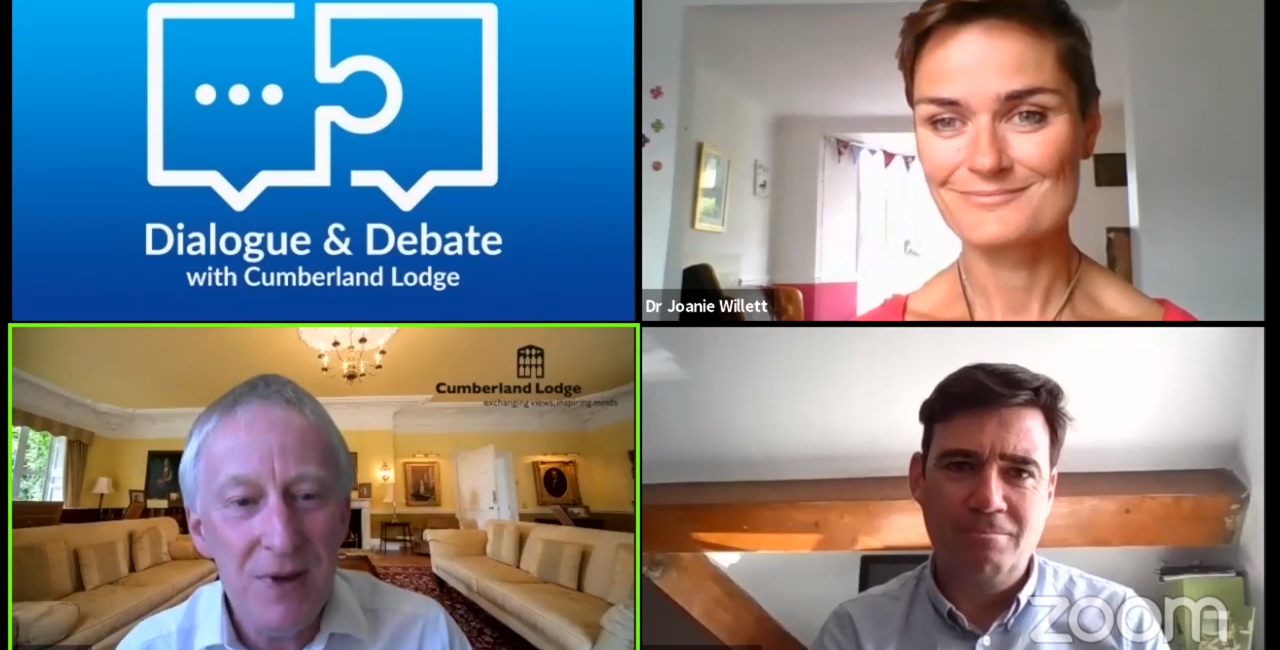On the afternoon of Friday 18 September, Cumberland Lodge Chief Executive, Dr Ed Newell welcomed Andy Burnham (Mayor of Greater Manchester) and Dr Joanie Willett (Senior Lecturer in Politics and Co-Director of the Institute of Cornish Studies at the University of Exeter) to share their regional perspectives on how to improve community resilience.
The discussion explored recommendations from the Lodge’s 2020 report, Resilient Communities.
Transformative, not simply restorative
Ed opened the discussion by asking how communities can ‘build back better’ from the COVID-19 crisis in a way that is transformative, rather than simply restorative.
Andy argued that the pandemic is exposing the lack of resilience in the poorest areas of the United Kingdom. He pointed to the Health Equity in England: The Marmot Review 10 Years On research, which explores the structural reasons for poor health, such as low-paid and insecure employment and low-quality housing. He urged the Government to re-focus its ambition of ‘levelling up’ opportunities from longer-term infrastructure projects towards addressing the basic ‘foundations’ of employment and housing.
Speaking from the South-West of England perspective, Joanie argued that the transformative needs will be different in urban and rural communities. For example, the physical challenges of ‘getting around’ in rural areas do not exist in the same way in towns and cities. She argued that policy decisions often do not reflect people’s everyday realities.
Joanie’s recent research found that people in areas of high levels of European Union structural funding did not necessarily feel that the spending reflected what their communities needed and wanted. She urged for major transport infrastructure investment and for decision-makers to listen to, and work more closely with, local communities, in rural and urban settings.
Different places, different solutions
In response to Ed‘s question about whether empowering community leaders was part of the solution for supporting resilience, the panellists both called for structural change to give greater power to local government to develop locally tailored solutions.
The panellists called for structural change to decentralise more decision-making power to the regions and local communities, which in their views lack the means to support their communities effectively.
Reflecting on his experience in Parliament, and his current role working with local leaders in the North West of England, Andy argued for the need to transfer more power from Westminster to people who are closer to their communities. He said: ’In my old job… I could see numbers, not names. In my current role, I can see names, not numbers.’
Andy referenced the UK 2070 Commission Final Report, which found that the UK is politically ‘over-centralised’ and regionally imbalanced compared to other member-states of the Organisation for Economic Co-operation and Development (OECD).
He argued for greater devolution, perhaps along the lines of the federal UK model suggested by former Prime Minster, Gordon Brown, and with more power given to councils and combined authorities.

Similarly, Joanie expressed the importance of people-centred policymaking. She argued that one of the strengths of local government is its connection to people and community, and their specific needs and challenges. She discussed the potential for empowering different layers of government, including unitary authorities, cities and parish councils.
Joanie also argued that, currently, local government is concerned with implementing the policies of central government rather than making decisions that really reflect the needs of local people.
She added that policymaking in the UK focuses too heavily on target-setting rather than ’human stories‘: because rural areas are less densely populated than their urban counterparts, they consistently receive less attention and funding, which has a tangible impact on people’s lived experiences.
More representative politics
Following on from these points on local government, an online audience member asked: ‘How can we encourage and enable people from disadvantaged backgrounds to participate in politics and government, in order to help build community resilience, when they see so few people like themselves in those roles?’
Andy argued that greater devolution would allow local government to bring in more diverse people to help contribute to the change that is needed in communities. He gave examples from Greater Manchester, of setting up the Youth Combined Authority to get young people involved in policymaking, and of creating a Race Equality Panel and Disabled People’s Panel.
Drawing on her research on parish councils, Joanie reiterated the importance of local government institutions being representative of the communities they serve, if they are to create accessible spaces for people to engage in local politics. She stressed the importance of political representatives being open to ideas from people of diverse backgrounds.

A secure vision for the future
Ed’s final question was on the panellists’ visions for more resilient communities in the next two decades. Both Andy and Joanie highlighted the need for better quality and more secure housing for everyone.
Andy pointed, particularly, to the stress experienced by many people living in private rented accommodation. He argued that housing should be seen as a basic human right, like healthcare and education.
Similarly, Joanie argued that housing insecurity means that ‘we waste talent’, as people are less able to use their energy on activities that would otherwise allow themselves and their communities to ‘flourish’.
Andy also discussed the importance of ‘good employment’ for tackling the ’epidemic of insecurity’. He gave the example of the Greater Manchester Good Employment Charter, which sets standards for organisations throughout the region and is reflected in public procurement practices. Standards include paying a living wage and allowing flexible working arrangements.
Joanie called for an increased understanding of the realities of life in rural areas, which could lead to better allocation of resources to support community resilience.
Structural change for power and representation
I was thrilled to attend this, my first Dialogue and Debate as a new Cumberland Lodge Fellow. Like Andy, I have worked in both national and local government in the UK (though, I hasten to add, not at the same level of leadership!). I resonate with his and Joanie’s reflections of the importance of structurally empowering local leaders to make local decisions.
When I worked in local government, I felt inspired by the potential for making change in my community but frustrated by the lack of resources. Having worked on housing policy at a national and local level, I recognise the importance of secure housing as being essential for supporting community resilience.
As part of the solution to tackling the housing crisis, the Cumberland Lodge report Resilient Communities recommends that national government should clearly map out national decisions as they relate to local infrastructure, for review by stakeholders across the UK.
I appreciated the audience question about empowering more people from disadvantaged backgrounds to participate in politics. Local government in the UK is not representative of the population: for example, the latest Local Government Association census found that 63 per cent (%) of councillors in England were male and 96% described their background as White.
In this webinar, Andy and Joanie offered ideas for increasing diversity, such as finding spaces to engage with different voices, or creating panels that give different groups the chance to influence policy.
Other interventions suggested by the Fawcett Society and Local Government Information Unit (LGIU) Local Government Commission include:
- Improving family leave for councillors
- Actively encouraging Black, Asian and minority ethnic candidates to apply for local government roles.
To amplify the diverse voices of local communities, the Cumberland Lodge Report on Resilient Communities recommends measures such as:
- A critical appraisal of systemic racism in public institutions
- Mandatory participatory processes for policy change.
The overall impression I took away from this discussion was that, as the UK looks to ‘build back better’ from the COVID-19 crisis, it is essential that we change our political structures to empower local leaders to work towards greater community resilience, and increase the diversity of government at all levels.


